One common issue that dog owners may encounter is the occurrence of stomach gurgling in their pets. While this may be a normal and harmless process, it can sometimes cause concern and raise questions about the well-being of our furry companions.
This article aims to provide a comprehensive understanding of dogs stomach gurgling, exploring various factors that can contribute to this phenomenon. Although some might argue that stomach gurgling is simply a benign bodily function with no need for further investigation, it is crucial to recognize the potential underlying causes that may require attention from veterinary professionals.
By addressing these concerns, dog owners can better serve their pets by ensuring their health and happiness. From discussing normal digestive processes to more serious conditions such as gastric dilatation-volvulus (bloat), this article will equip readers with valuable knowledge on when it is appropriate to seek veterinary assistance for their dogs experiencing stomach gurgling.
Key Takeaways
- Stomach gurgling in dogs can be normal or indicate underlying issues
- Feeding a balanced diet, regular exercise, and avoiding sudden diet changes promote healthy digestion
- Slow feeding techniques and portion control can help regulate eating habits and reduce gurgling episodes
- Veterinary attention should be sought if stomach gurgling is accompanied by concerning symptoms
Normal Digestive Processes in Dogs

Normal digestive processes in dogs involve the rhythmic contractions of the stomach and intestines, as well as the secretion of digestive enzymes to break down food into absorbable nutrients. Maintaining dog digestive health is crucial for their overall well-being.
However, dogs are prone to common digestive issues that can affect their appetite and comfort. These issues may include gurgling sounds in the stomach. While a certain level of gurgling is considered normal during digestion, excessive or prolonged gurgling may indicate an underlying problem such as gastrointestinal inflammation or an imbalance in gut bacteria. In such cases, it is recommended to consult a veterinarian for proper diagnosis and treatment.
Additionally, feeding a balanced diet, providing regular exercise, and avoiding sudden diet changes can help promote healthy digestion in dogs.
Dogs Stomach Gurgling is it Hunger or Thirst?
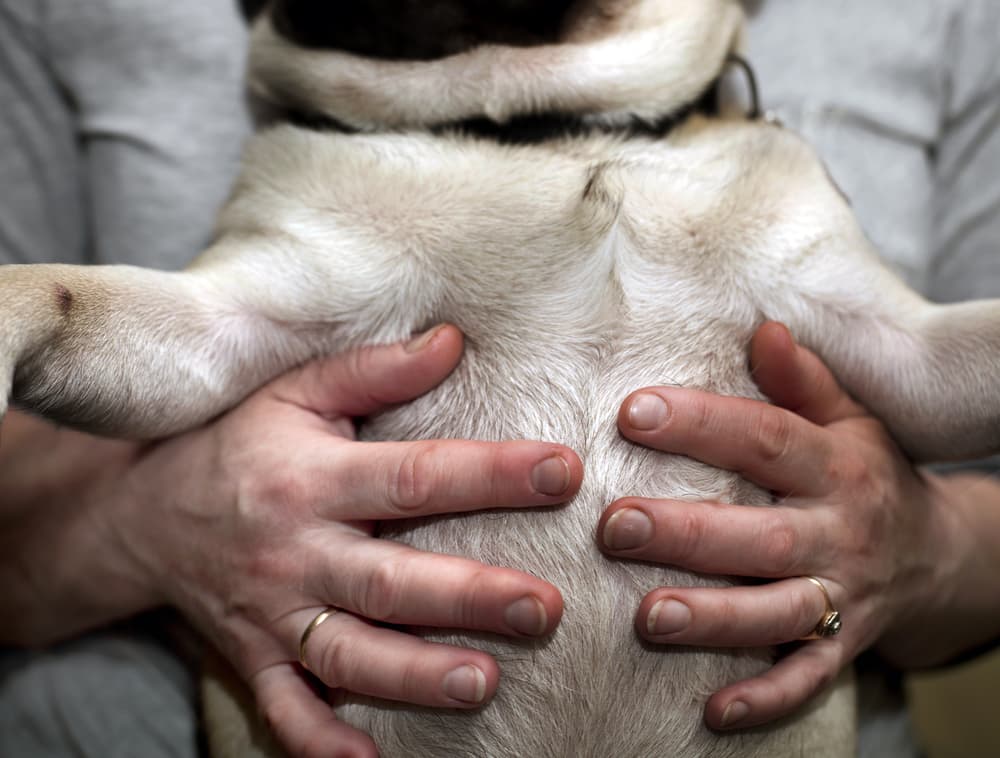
Hunger or thirst can cause audible sounds in the digestive system, which may be concerning for some individuals. Dogs rely on hunger signals to indicate their need for food, and when these signals are not met, their stomachs can start gurgling. This is a normal physiological response as the stomach muscles contract and move air and fluid through the intestines.
Similarly, dehydration can also lead to stomach noises in dogs. Adequate hydration is essential for proper digestion, and when a dog is thirsty or dehydrated, it can affect the movement of food through the gastrointestinal tract, resulting in increased sounds.
To address these concerns, it is important to ensure that dogs are fed regularly and provided with access to clean water at all times to meet their hunger and hydration needs.
Eating Too Quickly

Eating too quickly can lead to disruptive sounds in the digestive system, which may be a cause for concern among individuals.
When dogs consume their meals rapidly, they tend to ingest excessive amounts of air along with their food. This can result in the accumulation of gas in the stomach, leading to gurgling noises. Furthermore, quick eating can also increase the risk of gastrointestinal issues such as bloating and indigestion.
To mitigate these concerns, implementing slow feeding techniques and practicing portion control are recommended. Slow feeders are widely available and can help regulate the pace at which dogs consume their meals by forcing them to eat more slowly. Additionally, portion control ensures that dogs receive an appropriate amount of food without overeating or experiencing discomfort in their digestive system due to rapid consumption.
By addressing these factors, owners can promote healthier eating habits for their canine companions and reduce the occurrence of stomach gurgling episodes.
Dietary Indiscretion or Upset Stomach
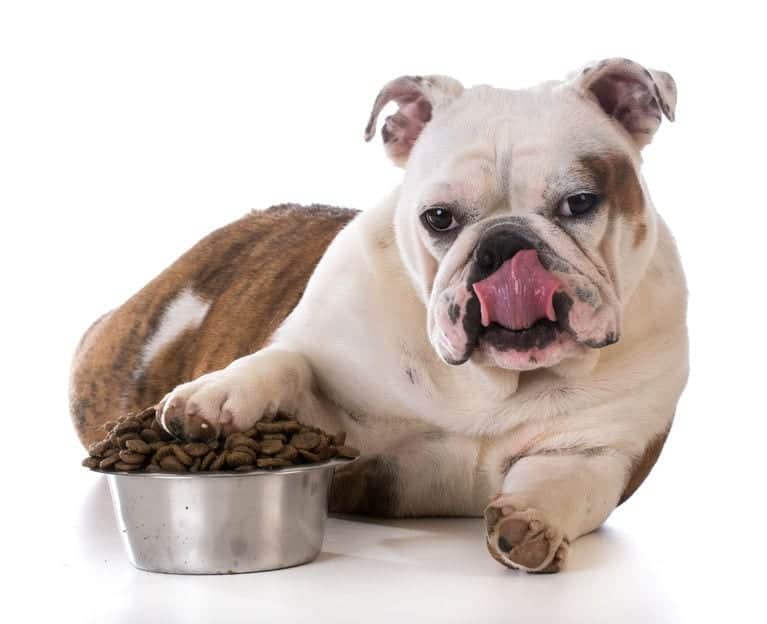
Dietary indiscretion or an upset stomach can be a result of consuming food that doesn’t agree with the digestive system, causing discomfort and potentially leading to undesirable outcomes. Dogs are known for their indiscriminate eating habits, often ingesting substances that can irritate their gastrointestinal tract. This can include spoiled food, garbage, or even foreign objects. Additionally, sudden changes in diet or the introduction of new foods can also lead to stomach upset in dogs.
To better understand the causes and remedies for dog stomach gurgling, consider the following table:
| Causes of Stomach Gurgling in Dogs | Home Remedies for Upset Stomach in Dogs |
|---|---|
| – Dietary indiscretion | – Fasting |
| – Consuming spoiled food | – Feeding a bland diet |
| – Ingesting foreign objects | – Providing small, frequent meals |
| – Sudden diet changes | – Offering probiotics |
By implementing these home remedies and ensuring a well-balanced diet for your furry friend, you can help alleviate their stomach gurgling and promote a healthier digestive system.
Intestinal Gas
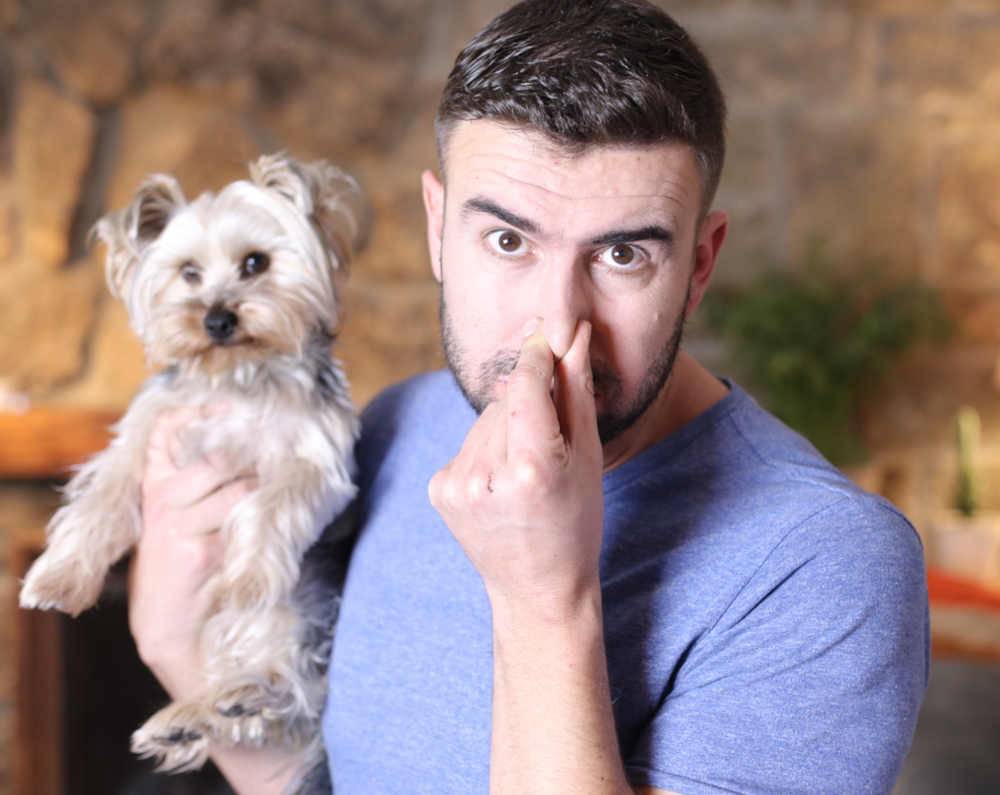
Intestinal gas, also known as flatulence, is a common digestive issue that can cause discomfort and bloating. It occurs when excessive amounts of air or gases accumulate in the intestines, leading to the release of gas through the rectum. This phenomenon can be caused by a variety of factors, including dietary choices, certain medical conditions, and digestive disturbances.
To better understand intestinal gas and its impact on individuals seeking relief from digestive disturbances, consider the following:
1) Diet: Consuming foods high in fiber or carbohydrates can increase gas production.
2) Swallowing air: Eating too quickly or drinking carbonated beverages can introduce excess air into the gastrointestinal tract.
3) Digestive disorders: Conditions such as irritable bowel syndrome or lactose intolerance may contribute to excessive gas formation.
4) Bacterial fermentation: Certain gut bacteria produce gases during the breakdown of undigested food particles.
Understanding these factors can help individuals make informed dietary choices and seek appropriate medical advice to alleviate symptoms associated with intestinal gas.
Gastrointestinal Infections or Parasites

Gastrointestinal infections or parasites can result in severe discomfort and disruption of normal digestive processes. Dogs affected by these conditions may experience a range of gastrointestinal symptoms, including diarrhea, vomiting, abdominal pain, and loss of appetite. Prompt diagnosis and treatment are essential to alleviate the symptoms and prevent further complications.
When it comes to treating gastrointestinal infections or parasites in dogs, several options are available. The choice of treatment depends on the specific infection or parasite involved. In some cases, medication may be prescribed to eradicate the infection or eliminate the parasite. Additionally, supportive care such as fluid therapy might be necessary to ensure hydration and maintain electrolyte balance.
To provide a better understanding of common gastrointestinal infections and parasites that affect dogs, the following table lists three examples along with their respective symptoms:
| Infection/Parasite | Symptoms |
|---|---|
| Giardia | Diarrhea, weight loss |
| Roundworms | Vomiting, pot-bellied appearance |
| Coccidia | Bloody diarrhea |
By addressing gastrointestinal infections or parasites promptly and appropriately, veterinarians can help improve a dog’s overall well-being while minimizing discomfort.
Food Allergies or Intolerances
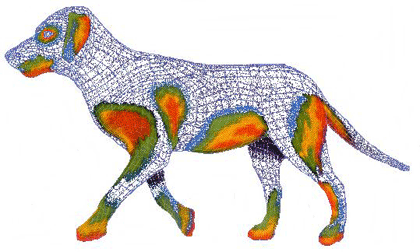
Food allergies or intolerances can lead to a range of symptoms, including skin rashes and gastrointestinal discomfort. In dogs, food sensitivities are commonly associated with digestive discomfort, such as stomach gurgling. When a dog is allergic or intolerant to certain ingredients in their diet, their immune system reacts negatively, resulting in various symptoms.
These can include vomiting, diarrhea, gas, and abdominal pain. Identifying the specific allergens or intolerances can be challenging and may require an elimination diet or allergy testing. Once identified, eliminating these triggers from the dog’s diet is essential to manage their symptoms effectively.
It is important for dog owners to work closely with veterinarians to develop appropriate dietary plans that address the dog’s food sensitivities while ensuring they receive proper nutrition.
Inflammatory Bowel Disease
Inflammatory Bowel Disease (IBD) is a chronic condition characterized by inflammation and damage to the digestive tract, resulting in severe discomfort and disruption of normal bowel function.
The exact causes of IBD are not fully understood, but it is believed to be a complex interplay between genetic factors, environmental triggers, and an abnormal immune response.
Common symptoms include abdominal pain, diarrhea, weight loss, and fatigue.
Treatment options for IBD aim to reduce inflammation and alleviate symptoms. This may involve medications such as anti-inflammatory drugs or immunosuppressants. In some cases, surgery may be necessary to remove damaged portions of the digestive tract.
Prevention and management of IBD involve lifestyle modifications such as following a healthy diet, managing stress levels, avoiding triggers such as certain foods or medications, and regular exercise.
It is important for individuals with IBD to work closely with healthcare professionals to develop an individualized treatment plan that addresses their specific needs.
Gastric Dilatation-Volvulus (Bloat)
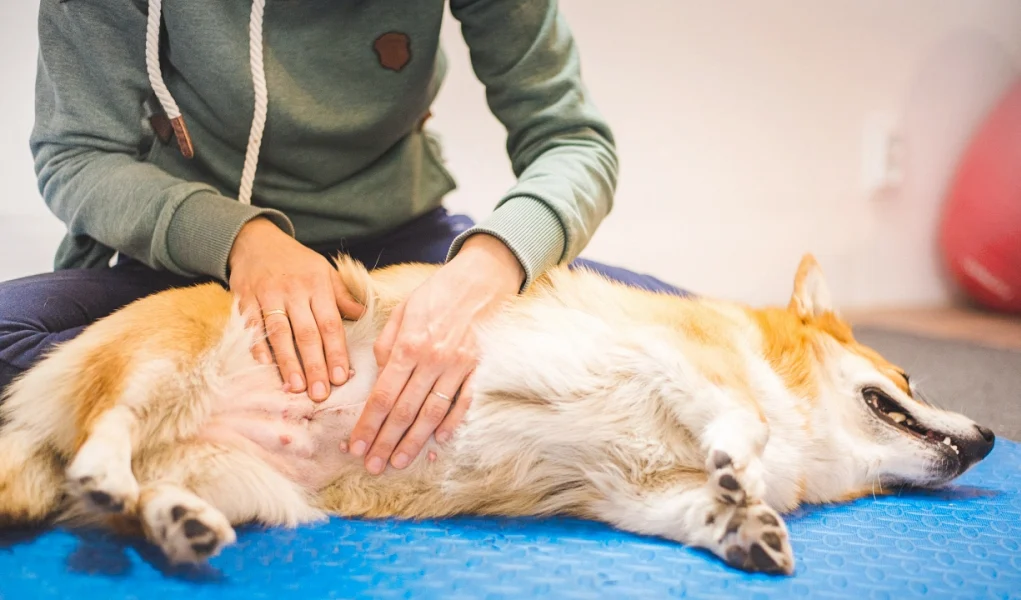
In the previous subtopic, we discussed Inflammatory Bowel Disease (IBD) as a potential cause of dogs’ stomach gurgling. Now, let us explore another serious condition called Gastric Dilatation-Volvulus (Bloat). This condition occurs when a dog’s stomach fills with gas and expands, leading to its twisting on its axis, known as stomach torsion. Bloat is considered a life-threatening emergency that requires immediate veterinary intervention, including emergency surgery to untwist the stomach and alleviate the pressure. If left untreated, bloat can result in tissue damage, compromised blood flow to vital organs, and even death. To provide further insight into this topic, consider the following table:
| Symptoms of Bloat | Treatment Options |
|---|---|
| Distended abdomen | Emergency surgery |
| Unsuccessful vomiting attempts | Stomach decompression |
| Rapid breathing | Intravenous fluids |
| Weakness or collapse | Antibiotics |
| Pale gums | Pain medication |
By understanding the signs and treatment options associated with gastric dilatation-volvulus (bloat), dog owners can promptly recognize this critical condition and seek immediate veterinary care.
When to Seek Veterinary Attention
One crucial aspect to consider is determining the appropriate time to seek veterinary attention for a potential health concern in your canine companion.
When it comes to dogs experiencing stomach gurgling, there are certain factors that can help in deciding when to worry and seek professional advice.
While occasional stomach noises may not be a cause for concern, persistent or excessive gurgling could indicate an underlying issue.
Common causes of stomach gurgling in dogs include gas, indigestion, dietary changes, gastrointestinal infections, and even more serious conditions such as gastric dilatation-volvulus (bloat).
If your dog’s stomach gurgling is accompanied by symptoms such as vomiting, diarrhea, loss of appetite, abdominal pain or distention, lethargy, or any other concerning signs, it is recommended to consult with a veterinarian promptly.
They can assess your dog’s condition and provide appropriate treatment if necessary.
You may also want:
- Are Dogs Ticklish
- Why are Dog Nose Wet
- The Possibility of Dogs Being Autistic
- How to Stop Puppies from Biting and Chewing
- Why Does Dog Lick My Feet
- Do Dogs Wag Their Tails
- Why Is My Dog Coughing
Conclusion
Dogs stomach gurgling is a common and usually harmless occurrence, but it can sometimes indicate underlying health issues. As responsible pet owners, it’s crucial to pay attention to your dog’s behavior and consult a veterinarian if gurgling persists or is accompanied by other symptoms.
With proper care, a balanced diet, and regular check-ups, you can help ensure your furry companion maintains a healthy and happy tummy. Stay informed, be attentive, and cherish the special bond you share with your canine friend.
“If you can’t find the right dog for you to adopt locally, please consider adopting a dog from Bone Voyage Dog Rescue. We’ll fly with your dog to you.”
Frequently Asked Questions
Can dogs’ stomach gurgling be a sign of a serious health condition?
Stomach gurgling in dogs can have various potential causes, including normal digestive processes and serious health issues. Differentiating between the two requires careful observation of accompanying symptoms such as vomiting, diarrhea, or lethargy to determine if further veterinary attention is needed.
Is it normal for a dog’s stomach to gurgle after eating or drinking?
After a dog eats or drinks, it is normal for their stomach to gurgle as part of the digestion process. Common causes of stomach gurgling in dogs include food moving through the digestive tract and the release of gas.
How long does it usually take for a dog’s stomach to stop gurgling?
The duration for a dog’s stomach noises to cease can vary depending on the individual dog and underlying causes. To prevent stomach gurgling in dogs, it is advisable to offer a balanced diet, avoid sudden dietary changes and provide regular exercise.
Are there any home remedies or over-the-counter medications to treat a dog’s stomach gurgling?
Home remedies and over-the-counter medications are available to alleviate digestive issues in dogs. These options can help relieve stomach gurgling and improve overall gastrointestinal health, providing relief for our furry companions.
Can stress or anxiety cause a dog’s stomach to gurgle?
Stress induced stomach gurgling in dogs can be caused by various factors, including anxiety. While dietary changes may help reduce a dog’s stomach gurgling, it is important to consult a veterinarian for proper diagnosis and treatment.
